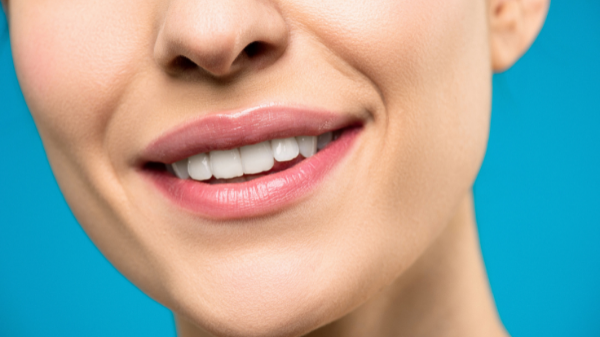We’re hoping a mask-free conversation will be a possibility again and once that happens, a great smile will be essential to making a good first impression. But if your carefree adult lifestyle has caused stains and discolouration on your teeth and that’s stopping you from flashing your megawatt smile, we have just the remedy to recommend…
Oil pulling
Oil pulling is a 3,000-year-old Indian folk remedy that was discovered by chance. A gentler alternative to teeth whitening, it removes toxins and improves oral hygiene by fighting-off bacteria that causes teeth to stain.
Steps: The method involves swishing an oil in your mouth, coconut oil is gaining ground, for 15-20 minutes and then spitting it. The logic is that the oil sticks to the oil in the membranes of bacteria – so, when you spit it out, you’re also naturally cleansing your mouth of the bad guys.
Apple cider vinegar
Apple cider vinegar is a known disinfectant that has been used for centuries. The main active ingredient is acetic acid, which is effective in killing bacteria, which helps counteract and prevent future staining. Though it should be used in modest amounts as its acidic properties can, overtime, cause damage to the surface and structure of the teeth.
Steps: Mix two teaspoons of apple cider vinegar with six ounces of water, then swish the solution for 30 seconds before rinsing with water and complete by brushing your teeth.
Baking powder
This staple baking product does more than raise your bread. It is also popularly used for teeth cleaning and whitening. It contains anti-bacterial properties that help clean the teeth, though it wouldn’t help to protect them against cavities as much as fluoride would in toothpaste.
Steps: Mix a tablespoon of baking soda with water to form a thick paste and use it to brush your teeth.
Activated charcoal powder
Activated charcoal can absorb surface stains to some degree and improve bad breath, though daily use can cause tooth sensitivity due to its mildly abrasive properties.
Steps: Activated charcoal can be purchased in powder or capsule form. It’s available over-the-counter or at your dentist’s to mix with water to form a paste.



